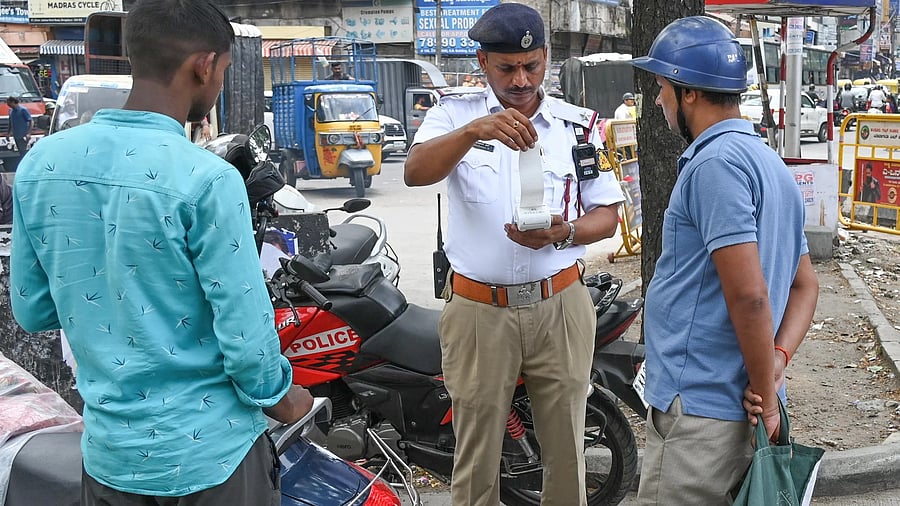
Since the discount was announced, over Rs 11 crore has been collected, reports say.
Credit: DH File Photo
The recently announced 50% discount on long-pending traffic fines has incentivised droves of defaulters to pay up. Since the announcement, made on August 23, over Rs 11 crore has been collected, reports say. The scheme is effective until September 12.
However, some experts believe it could be sending the wrong message. The long-term effects of such schemes could further contribute to poor road discipline, they say. This is the second time such a discount has been introduced. In 2023, over Rs 5 crore was collected through a similar scheme.
A civic activist points out that Bengaluru is one of the worst cities for road safety. According to data, at least two people die on the city’s roads daily. “In such a city, traffic violations should be dealt with strictly to ensure the roads are safe for pedestrians and motorists. Additionally, violations should be connected to vehicle insurance. The number of traffic violations indicate unsafe driving and should lead to insurance costs escalating drastically,” he shares.
He cites the example of global cities, where motorists automatically slow down or come to a stop if they see a pedestrian on the road even if they are at a distance. “This is because the violations are dealt with swiftly and stringently and even taken to court for trauma,” he explains.
He recalls that a few years ago, the government hiked up the fines for traffic violations to Rs 2,000 and above. “When it was announced, there was a huge outcry on X and the plan was dropped,” he notes.
However, Alok Prasanna Kumar, an advocate and co-founder of the Vidhi Centre for Legal Policy, believes it is a sensible move. Enforcement comes with its own costs. The fines levied cancel out enforcement costs. “It is better to have the fines paid than to have them pending for years. I do not think offering discounts will increase violations. I doubt people think about fines while breaking the rules. It is often not done on purpose,” Kumar says. The problem of traffic violations, he elaborates, should be addressed by the RTOs and Karnataka transport department. “Why are drivers’ licences issued so easily? They should make the process of getting a licence more challenging,” he states.
According to Srinivas Shenoy, deputy chief traffic warden, education on following traffic rules is the need of the hour. “We have been conducting talks and presentations regularly in schools, colleges and offices for a long time,” he shares, adding that the discount will not have a negative effect on compliance. “It is not a regular feature. It is done once in a while to encourage the public to pay fines. So I do not think it will make a difference,” he explains.